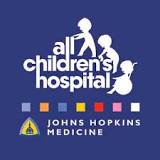Probiotic Use in Children Undergoing Hematopoietic Stem Cell Transplantation (HSCT) - A Pilot Study
| Status: | Completed |
|---|---|
| Conditions: | Blood Cancer |
| Therapuetic Areas: | Oncology |
| Healthy: | No |
| Age Range: | 2 - 17 |
| Updated: | 2/7/2015 |
| Start Date: | November 2009 |
| End Date: | October 2015 |
| Contact: | Michael Nieder, MD |
| Email: | NiederM@allkids.org |
| Phone: | (727)767-6856 |
A Limited Institution Pilot Trial Evaluating the Safety of Administering the Probiotic, Lactobacillus Plantarum, to Children and Adolescents Undergoing Allogenic Hematopoietic Stem Cell Transplantation (HSCT)
Primary Objective:
1. To evaluate the safety of orally administered Lactobacillus plantarum strains 299 and
299v, a probiotic, in patients undergoing allogeneic myeloablative HSCT, as measured by
incidence of Lactobacillus plantarum bacteremia.
Secondary Objectives:
1. To investigate the feasibility of administering Lactobacillus plantarum 299 and 299v to
children and adolescents undergoing HSCT.
2. To describe the overall incidence of bacteremia in HSCT patients who have been
administered Lactobacillus plantarum.
3. To describe the overall incidence of acute GVHD in HSCT patients who have been
administered Lactobacillus plantarum
1. To evaluate the safety of orally administered Lactobacillus plantarum strains 299 and
299v, a probiotic, in patients undergoing allogeneic myeloablative HSCT, as measured by
incidence of Lactobacillus plantarum bacteremia.
Secondary Objectives:
1. To investigate the feasibility of administering Lactobacillus plantarum 299 and 299v to
children and adolescents undergoing HSCT.
2. To describe the overall incidence of bacteremia in HSCT patients who have been
administered Lactobacillus plantarum.
3. To describe the overall incidence of acute GVHD in HSCT patients who have been
administered Lactobacillus plantarum
Myeloablative regimens are the backbone of hematopoietic stem cell transplantation (HSCT)
and are associated with prolonged periods of cachexia/anorexia, nausea/vomiting, mucositis,
and compromised gut integrity (CGI). The toxicities associated with HSCT often lead to
prolonged periods of poor oral intake and may result in overt malnutrition. CGI decreases
oral tolerance to foods, reduces QOL and functional status, delays the transition from the
hospital to home setting, and increases the risk of the development of gut-derived
infections. Probiotics are nutritional supplements that contain a defined amount of viable
microorganisms and upon administration confer a benefit to the host. Clinical trials in
adults receiving organ transplants have found probiotics decrease the incidence of
infection, the duration of antibiotic use, the incidence of multiorgan failure and systemic
inflammation. Children and adolescents undergoing HSCT, experience similar clinical
challenges suggesting probiotics may have a therapeutic value in the setting of HSCT. We
are proposing to evaluate the safety and feasibility of administering probiotics to children
and adolescents undergoing HSCT.
and are associated with prolonged periods of cachexia/anorexia, nausea/vomiting, mucositis,
and compromised gut integrity (CGI). The toxicities associated with HSCT often lead to
prolonged periods of poor oral intake and may result in overt malnutrition. CGI decreases
oral tolerance to foods, reduces QOL and functional status, delays the transition from the
hospital to home setting, and increases the risk of the development of gut-derived
infections. Probiotics are nutritional supplements that contain a defined amount of viable
microorganisms and upon administration confer a benefit to the host. Clinical trials in
adults receiving organ transplants have found probiotics decrease the incidence of
infection, the duration of antibiotic use, the incidence of multiorgan failure and systemic
inflammation. Children and adolescents undergoing HSCT, experience similar clinical
challenges suggesting probiotics may have a therapeutic value in the setting of HSCT. We
are proposing to evaluate the safety and feasibility of administering probiotics to children
and adolescents undergoing HSCT.
Inclusion Criteria:
- All patients undergoing myeloablative allogeneic HSCT will be eligible. The source
of stem cells can be from bone marrow, umbilical cord blood or cytokine mobilized
peripheral blood. Donor can be HLA matched sibling or parent, a related donor
mismatched for a single HLA locus (class I or II), unrelated marrow or peripheral
blood stem cell donor, or unrelated cord blood at least 4/6 antigen match (Class 1 or
II).
- Patients of either gender and between 2 and 17.99 years of age
- Patients receiving any type of GVHD prophylaxis are eligible.
Exclusion Criteria:
- Patients who have self-prescribed probiotics within 3 months of starting the
conditioning regimen for stem cell transplant (consumption of yogurt products is
allowed).
- Patients with known allergy to oats.
- Patients who have had any type of gut damage within the past three months; such as,
previous bowel perforations; previous episode of Grade 4 neutropenic colitis or
typhlitis.
- Patients with inflammatory bowel syndrome, short small bowel syndrome, Crohns
Disease, Ulcerative Colitis, and patients with a history of bowel resections.
- Patients who have undergone a previous allogeneic HSCT.
We found this trial at
2
sites
Click here to add this to my saved trials
All Children's Hospital All Children's Hospital provides expert pediatric care for children and families from...
Click here to add this to my saved trials
